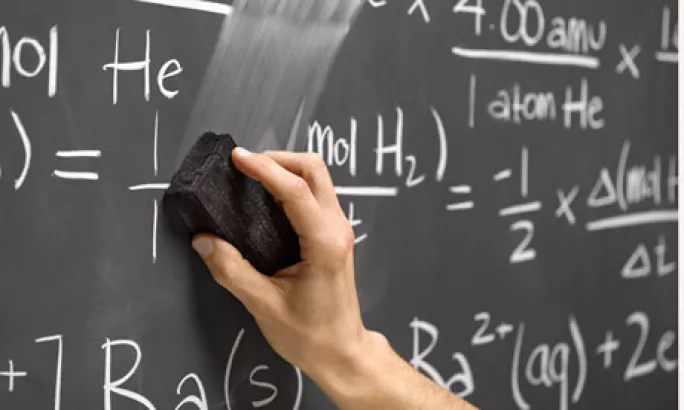Maths teachers lack confidence and qualifications, report finds
More than one in six maths teachers in the FE sector do not have a good GCSE pass in the subject, while almost half of them “lack confidence” in teaching it, new research has revealed.
A study commissioned by the Education and Training Foundation (ETF) found that 17.1 per cent of all maths teachers in the sector have only achieved a functional or adult basic skills level 2 qualification.
Among teachers leading GCSE maths classes, surveys of more than 470 staff also found that 9 per cent of them have not actually achieved this qualification themselves, and only have a functional or adult basic skills equivalent. A further 12 per cent have achieved no qualification higher than a GCSE themselves, even though they should typically be qualified at least one level higher than that which they are teaching at.
“This indicates that in some instances teachers may lack adequate qualification with respect to the level they teach,” the report says.
The figures follow increasing concerns in recent weeks about maths attainment among learners in FE. Last September ministers made it compulsory for students on post-16 courses who had not achieved at least a grade C in either English or maths to continue working towards these qualifications.
The sector is also grappling with a shortage of teaching staff. A separate report published today by the Association of Employment and Learning Providers (AELP) and the ETF reported that over 40 per cent of the work-based learning providers surveyed found it difficult to recruit teaching staff for maths and English.
Figures for 2012-13 published last week revealed that just 7 per cent of post-16 students sitting GCSEs achieved a grade C or better. Last month exam board OCR, the Association of Colleges and the AELP called for the qualification to be reformed to help older learners who have struggled with the subject to reach the floor target.
While many maths teachers have not achieved this standard themselves, the ETF report argues than they often compensate for this with their extensive experience.
But the survey reveals that many teachers still have concerns about teaching the subject, with 43 per cent saying they “lack confidence in teaching all elements of GCSE mathematics”. It adds that 16 per cent of teachers “lack confidence that they can deal with most questions asked by students”, while one in three say they “try to stick to the topics where [they feel] most confident”.
Sue Pope, chair of the Association of Teachers of Mathematics’s general council, said there was a “desperate need to upskill maths teachers in FE”.
“The teachers that are [teaching maths in the sector] have adapted, and they are more than capable of being developed, but they need to have the opportunity for continuous professional development, and for time and money to be made available, for them to be successful,” she added. “The support isn’t there to make it happen.
“They are teaching the best they can, but they need to be trained properly to do what’s expected of them.”
Helen Pettifor, the ETF’s director of professional standards and workforce development, said the shortage of well-qualified maths teachers in the sector was a “serious problem”, which was exacerbated by the fact many learners have a history of struggling with the subject.
“People who take maths in FE have already failed,” she said. “I know providers for which the most important thing is the relationship with the students first, maths second.
“We’re trying to attract new people into the sector so general knowledge about maths can be increased. We need more graduates, and we also want to be able to train people up so they have confidence teaching to GCSE.”
Related stories
Ofsted: Force colleges and schools to work together to tackle Neets 10 September 2014
Tailor-make exams so they’re ‘fit for purpose’ 8 September 2014
Keep reading for just £1 per month
You've reached your limit of free articles this month. Subscribe for £1 per month for three months and get:
- Unlimited access to all Tes magazine content
- Exclusive subscriber-only stories
- Award-winning email newsletters




